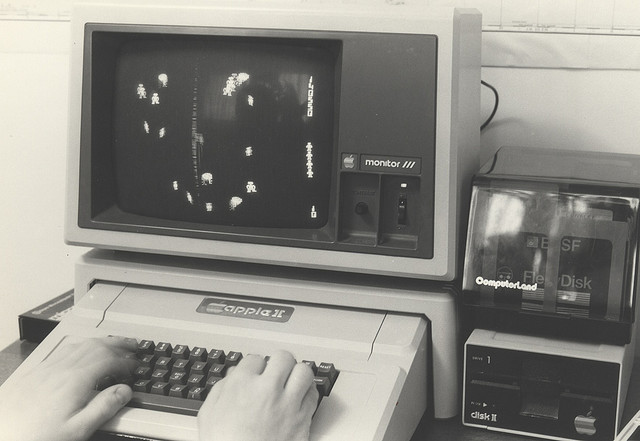The militarization of the Internet
Retrofitting the web to make it fit law enforcement’s (or national security’s) “authentication” needs would be an enormous, retrograde step.
Related postsProfesseur at Cardozo Law School in New York City, Susan Crawford was, until December 2009 President Barack Obama’s Special Assistant for Science, Technology, and Innovation Policy.
__
Someone needs to take a good hard look at those Internet surveillance stories being strategically placed on the front page of the New York Times.
There’s a trail here, I believe, that’s worth following. Here are some data points:
1. Cyberattack – there appears to be a deep interest in the ability to declare war online, as evidenced by cybersecurity research and public speeches by Herbert Lin, a key player who has worked on several cybersecurity reports for the National Research Council. Ethan Zuckerman has summarized a presentation by Lin, which included the following paraphrase of Lin’s remarks:
If we’re interested in pre-empting cyber attack, “you need to be in the other guy’s networks.” But that may mean breaking into the home computers of US citizens. To the extent that cloud computing crosses national borders, perhaps we’re attacking computers in multiple jurisdictions. Lin wonders whether a more authenticated internet will actually help us to pre-empt attack. And he reminds us that US Strategic Command asserts authorization to conduct “active threat neutralization” – i.e., logging into your machine to stop an attack in progress. . . .
Dr. Lin notes that it’s not a violation of international law to collect intelligence abroad. It’s possible to engage in covert action as regulated by US statute. And there’s an array of possible responses the US could launch in response to cyberattack (Lin pauses to note that he’s not advocating any of these) – we could attack enemy air defenses, hack their voting machines to influence an election, conduct campaigns of cyberexploitation to spy within those nations. Given all this, aren’t nations entitled to fear the consequences of a “free and open” internet? Might they reasonably choose to tighten national control over the internet?
2. A “more authenticated Internet” would obviously include using the leverage provided by network operators to permit only fully-authorized, identified machines to connect. The ability to remotely disconnect machines or devices until they are cleansed is now within reach for federal networks – this same capability will inevitably spread to private connections.
3. A “more authenticated Internet” would also include more-easily tappable applications as well as machines. That’s what FBI Director Mueller is talking about in this video at 3:29.
4. There must be deep stress inside the USG re what the overall public position of the Administration will be on enhancing surveillance, authentication, and the ability to declare war online. Secretary Clinton’s “Internet Freedom” speech of January 2010 made clear that the free flow of information online is an important component of the nation’s foreign policy.
Internet is not like the telephone
5. Given this stress, the agencies that are most interested in forwarding cyberattack abilities, surveillance, guaranteed back doors for encrypted communications, and all the other trappings of a “more authenticated Internet” have an interest in portraying their vision of the future Internet as inevitable. Part of that campaign would logically be to get the story into the mainstream media.
6. So, here we go – another front-page story yesterday in The Times: “Officials Push to Bolster Law on Wiretapping.” This is a hugely contentious issue. Should law enforcement be able to require all technologies online to have “back doors” allowing officials to (essentially) require that the same information be produced to them that was produced during the circuit-switched telephone era?
7. The Internet is not the same thing as a telephone network. It’s a decentralized agreement to route packets of information to particular addresses. It has made possible unparalleled innovation, free speech, and improvements to human lives around the world. Retrofitting it to make it fit law enforcement’s (or national security’s) “authentication” needs would be an enormous, retrograde step.
But it would certainly help us wage war online.
This post originally appeared on Susan Crawford’s blog
__
Photo Credits: Flickr CC jurvetson, randy.troppmann
http://owni.eu/2010/10/30/the-militarization-of-the-internet/

 email
email  -->
-->
Comments
Post a Comment